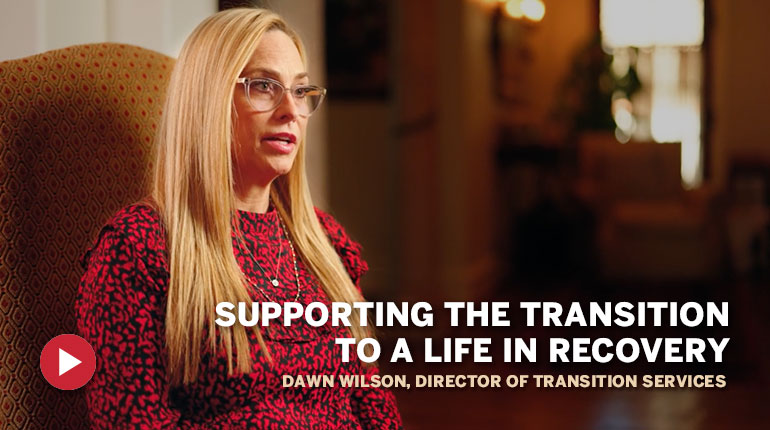Dawn Wilson, Director of Transition Services, Shares How We Handle Independent Living & Aftercare
Video Summary:
This video features Dawn Wilson, the Director of Transition Services at Burning Tree Ranch, discussing our program’s approach to treating chronic relapsers and supporting their transition back into everyday life – an area that many short-term programs do not address adequately.
Wilson understands that chronic relapsers, despite having participated in multiple prior treatment episodes, do not successfully implement the lessons they’ve learned in treatment programs in their daily life.
Together with the residential treatment team, Wilson is engaged with our client’s journey from the moment they step through the door. to the decision to transition through various phases of treatment and into independent living. Her in-depth knowledge of each client’s journey enables her to provide tailored support during transitional periods.
A key aspect of Wilson’s role is to ensure a smooth transition from the structured environment of the Ranch to aftercare and independent living.
Like all of us at Burning Tree, Wilson believes that no matter how dire the consequences of addiction become, there is hope for a new life in recovery.
Read: Video Transcript
I want to see families get restored. I want to see people get their life back.
My name is Dawn Wilson, and I’m the director of Transition Services for Burning Tree Ranch, and I’ve been here since 2011.
A lot of times, our clients have been through various treatment episodes in the past. They have a hard time actually putting into practice the disciplines that they’ve learned while they’re in treatment.
Typically, we have clients that come in that have done 30, 60, 90-day treatment episodes and they are very well taught at what it is they suffer from, but they don’t actually have any practical application of what they learned.
So they learned, “Hey, you need to go and get involved in a twelve step fellowship. You need to work the steps with a sponsor.” But nobody is actually following through and making sure that they habituate those disciplines in real life.
I actually go to the Ranch every Tuesday, and I am a part of what’s called master treatment planning. So I’m there from the first time that we introduce the client to staff, and I’m there every week going forwards. So I’m privy to all of the therapeutic interventions that we are using to help them.
I am a part of any discussion with the team around when they’re gonna be potentially going into phase two, when they’re gonna be discharging back into aftercare – I’m a part of all of that. I’m clear with what they’ve struggled with since they’ve walked in the door, and that makes me able to help them once they go into transitional living.
I think sometimes families think because they’ve done this over and over that their loved one’s too far gone, and that’s not the truth. No matter how far somebody goes down, I believe there’s always hope for them to recover and for them to have a new life.





